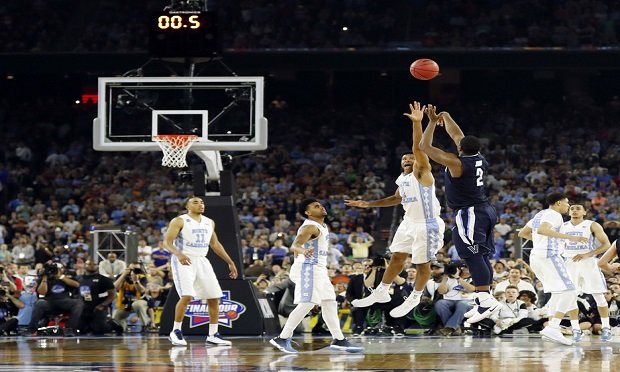 On March 12, the NCAA announced it is canceling March Madness, the men's Division I basketball tournament, and other men's and women's basketball tournaments in divisions I, II and III, due to the novel coronavirus. In a statement, the NCAA said, "This decision is based on the evolving COVID-19 public health threat, our ability to ensure the events do not contribute to spread of the pandemic, and the impracticality of hosting such events at any time during this academic year given ongoing decisions by other entities." (Photo: AP Photo)
On March 12, the NCAA announced it is canceling March Madness, the men's Division I basketball tournament, and other men's and women's basketball tournaments in divisions I, II and III, due to the novel coronavirus. In a statement, the NCAA said, "This decision is based on the evolving COVID-19 public health threat, our ability to ensure the events do not contribute to spread of the pandemic, and the impracticality of hosting such events at any time during this academic year given ongoing decisions by other entities." (Photo: AP Photo)
A year ago, some of us were skipping work to watch our alma maters compete in the March Madness tournament. This year, we were watching stone-skipping championships, sign spinning, marble racing and virtual NASCAR races to fill that void. In light of the cancellation of the annual March Madness tournament, along with almost all other competitive sports across the nation, and the suspension of the Summer Olympics, it's the right time to take another look at the potential insurance implications.
The annual NCAA tournament brings in the usual risks associated with college-level sporting events, but some of these risks are enhanced due to the level of play, the venues, and the extreme popularity of the tournament. ALM sister site Insurance Coverage Law Center (ICLC) had the opportunity to chat with Peter Williams of Allianz about the insurance aspects of covering such events. In talking to Williams, we were surprised to find that insuring such a big event is pretty straightforward. Event coverage starts with a basic commercial property and liability policy but on a much larger scale.
Recommended For You
Want to continue reading?
Become a Free PropertyCasualty360 Digital Reader
Your access to unlimited PropertyCasualty360 content isn’t changing.
Once you are an ALM digital member, you’ll receive:
- Breaking insurance news and analysis, on-site and via our newsletters and custom alerts
- Weekly Insurance Speak podcast featuring exclusive interviews with industry leaders
- Educational webcasts, white papers, and ebooks from industry thought leaders
- Critical converage of the employee benefits and financial advisory markets on our other ALM sites, BenefitsPRO and ThinkAdvisor
Already have an account? Sign In Now
© 2025 ALM Global, LLC, All Rights Reserved. Request academic re-use from www.copyright.com. All other uses, submit a request to [email protected]. For more information visit Asset & Logo Licensing.








